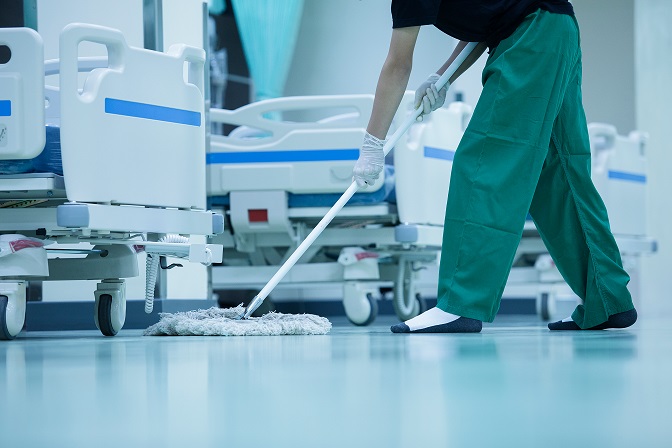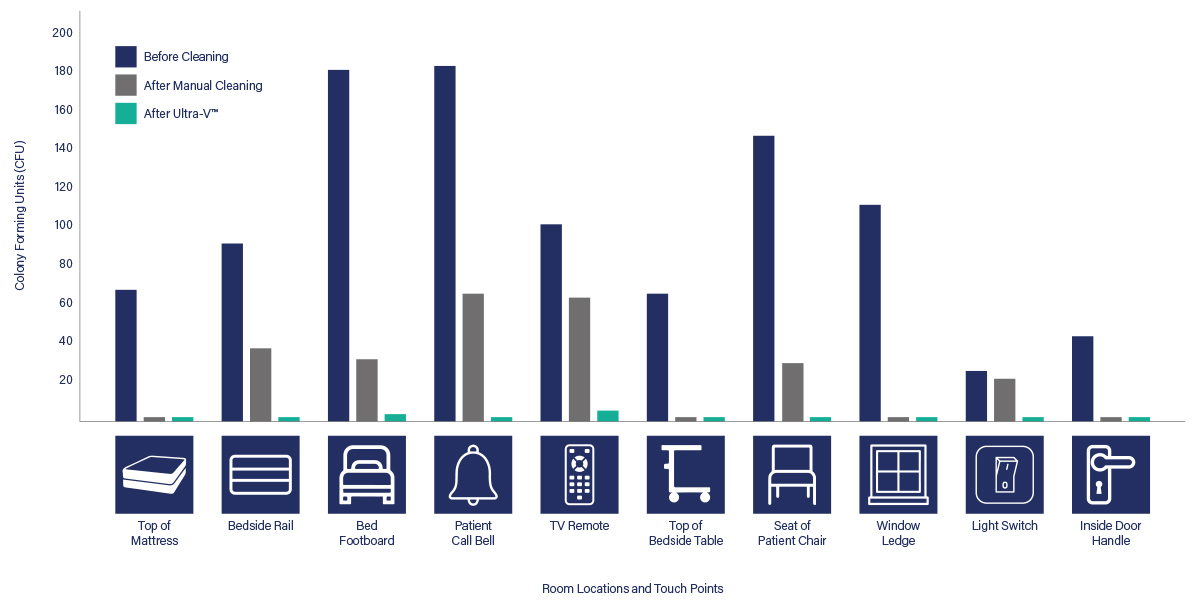
The strain placed on the NHS during each winter period highlights the significant role that effective decontamination can play in the prevention and control of infections. However, there is another war being waged within healthcare, the battle between antibiotics and microbes that have evolved to be resistant. Antimicrobial resistance has been in the headlines since its first discovery in 1987 and has been a growing concern with the prescription of antibiotics ever since. On a global scale the growing resistance to antibiotics has the potential to reach £66 trillion in lost productivity by 2050 if nothing is done to address this issue.
Winter brings with it additional pressures and regularly sees an increase in the spread of HAI’s, with spells of patients admitted for up to 40 days longer than originally planned due to acquiring a secondary infection.
Inivos has worked hard to design decontamination equipment to ease this burden. As part of a proactive or reactive cleaning schedule, our products can certainly remove the risk of cross contamination to other patients and staff.
As a preventative measure, the addition of UV-C to a manual cleaning schedule can drastically cut the likelihood of infections occurring. Working with Royal Wolverhampton NHS Trust, a proactive clean program showed a 98% reduction in the total viable count on over 160 high touchpoint surfaces when Ultra-V was included as an addition to the manual cleaning process. With an average decontamination time of 20 minutes, no programming requirements and a range of safety features, the Ultra-V reduced the delays between room readiness between discharge and admission. Providing patients and staff with a safe environment at the touch of a button.

When looking to tackle antibiotic resistant bacteria, the Ultra-V was recently used in Onze Lieve Vrouwen Gasthuis, a clinical hospital in Amsterdam, due to an outbreak of vancomycin-resistant enterococcus (VRE) in their Oncology ward. Emitting UV-C Light from 10 bulbs, the system measures surface exposure to ensure that a laboratory level of efficacy is provided with every decontamination. In this instance, the hospital reported a Log7.5 reduction in colony forming units of VRE.
Preventing the spread of these infections reduces the need to prescribe antibiotics, reducing the opportunity for microorganisms to develop resistance. The presence of HAI’s costs the NHS and estimated £2.7 billion and accounts for roughly 21% of annual bed days – removal of this stress on the NHS would create massive benefits in terms of patient turnaround and reduced waiting lists.
Producing reproducible, validated and reliable results, Inivos decontamination equipment is designed to be user intuitive, delivering an effective decontamination cycle through either UV-C or HPV. Our products are suitable for proactive decontamination or deep cleaning requirements following an outbreak and provide 50% of all UK NHS trusts with the peace of mind that patient care is their primary focus. To enable your staff to focus on patient care delivery, let Inivos deal with your decontamination needs and contact our sales team today to discuss a range of support options.




